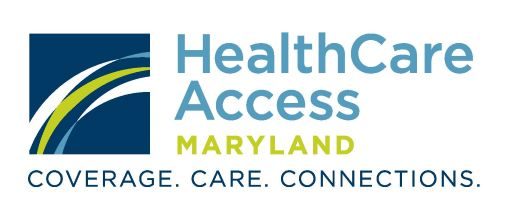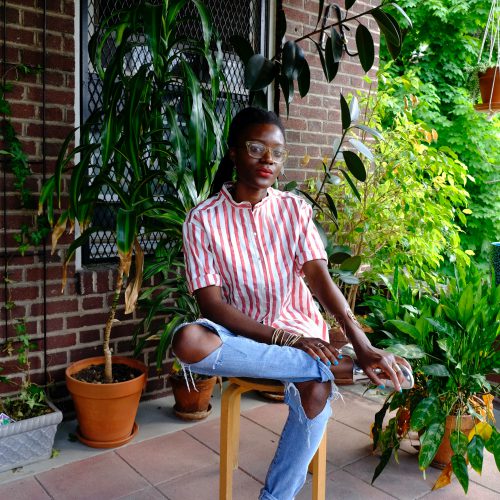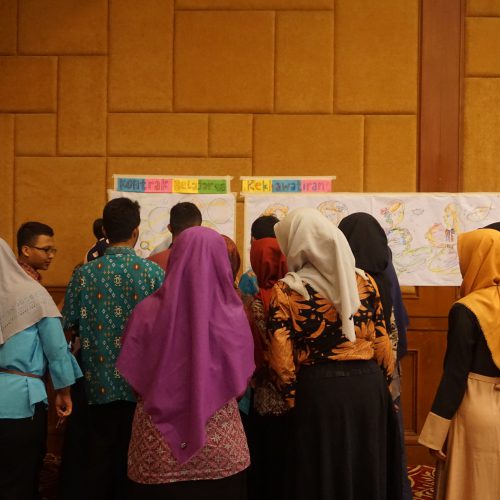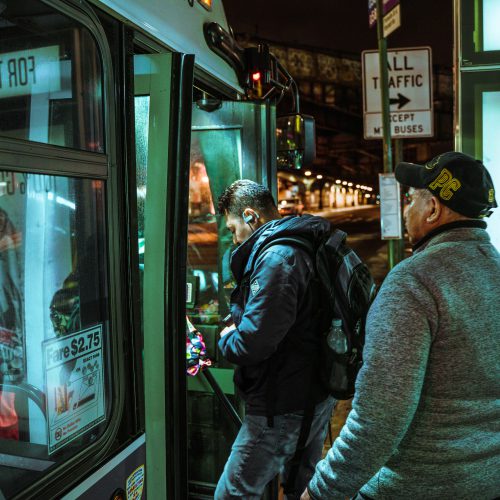August is National Immunization Awareness Month, a time dedicated to highlighting the importance of vaccinations for people of all ages. With the COVID-19 vaccine recently approved and available for children six months and older, we took some time to discuss a few commonly asked vaccine questions with Jenene Washington, MD, MBA, FAAP, Pediatric Medical Director of HealthCare Access Maryland’s MATCH program and Principal/Owner of Renaye James HealthCare Advisors. Read below to learn more about the COVID-19 vaccine for children aged six months to five years, the benefits, effectiveness, where to get the vaccine, and information on receiving the vaccine in conjunction with other childhood immunizations.
Is the COVID-19 vaccine safe for young children to get? How effective is the vaccine for kids under the age of 5?
Yes, the COVID-19 vaccines for children 6 months to 5 year of age that were recommended by the Centers for Disease Control (CDC) and approved by the Food and Drug Administration (FDA) earlier this summer (Moderna and Pfizer) were extensively tested in clinical trials and found to be safe and effective for this age group. The trials must demonstrate safety and efficacy before the FDA grants emergency use authorization (EUA).
The current options for COVID-19 vaccines in younger children:
- Pfizer- BioNTech vaccine for children 6 months to 5 year, three doses (3 micrograms per dose) and
- Moderna for children age 6 months to 6 years, two doses (25 micrograms per dose)
What else can parents do to protect their children once they are vaccinated?
Since the onset of the pandemic, over 14 million children have tested positive for COVID-19. Like the COVID-19 vaccinations for children ages 5 years and older, the COVID-19 vaccine for younger children does not eliminate the possibility of COVID-19 exposure and COVID-19 related illness. The goal of vaccination is to reduce the severity of disease and the risk of hospitalization and death. Although rare, some children who had COVID-19 have developed an inflammatory syndrome that causes inflammation of the heart, liver, and blood vessels.
After vaccination, it is recommended to be aware of the COVID-19 positivity in your community and to tailor your activities, and masking efforts based on the positivity rates. It is not recommended that children under two years of age wear masks, so it is even more important to consider vaccination for these children to reduce the possibility of severe disease if there is a COVID-19 exposure.
How does the dosage and schedule differ for children under 5 (or 6 for Moderna)?
The COVID-19 dosage for very young children (over 6 months and under 5) is much different from the older age group of children and adults.
The CDC provides the dosing schedule of the following:
Pfizer-BioNTech requires three doses of 3 micrograms each.
- The 2nd dose is given 3-8 weeks after 1st dose.
- The 3rd dose is given at least 8 weeks after 2nd dose
The Pfizer_BioNTech dose for young children (under 5 years) is 1/10 the adult dose.
The Moderna vaccine requires two doses of 25 micrograms each.
- 2 doses of Moderna given 4-8 weeks apart
The Moderna vaccine dose for children under 6 years old is ¼ the adult dose.
Moderna has also recently received FDA Emergency Use Authorization for its vaccine 6 years to 17 years. This vaccine is 50 micrograms a dose and requires 2 doses given 4-8 weeks apart. This dose is ½ the adult dose.
For both vaccines, children are considered fully vaccinated 2 weeks after the primary series. At this time, a recommendation for booster doses has not been released.
Can the COVID-19 vaccine be given along with other childhood immunizations?
Both COVID-19 vaccines can absolutely be given with other routine childhood immunizations. So, if your child has an upcoming appointment to receive immunizations, please ask your healthcare provider to discuss the COVID-19 vaccine with you. However, there is no need to wait for your next set of immunizations. Connect with your healthcare provider today to make sure your child is eligible for the vaccine and schedule your appointment.
Also remember to make your second vaccine appointment before you leave the office.
Where can my child go to get vaccinated?
COVID-19 vaccines for young children are offered at primary care healthcare provider offices, community sites like children’s museums, and some pharmacies.
If you are considering a location outside of your healthcare provider’s office, please confirm the ages that are able to receive vaccines at those locations. Some locations may not have the equipment of supplies for the young infants and may start at age 2 or 3 years.
Is there anything else that is important for parents to know?
Since the onset of the pandemic over 400 young children have died from COVID-19 infection. We have been waiting on an opportunity to protect the most vulnerable children in our lives against COVID-19 infection and now we have two vaccines that have been tested and found to be safe and effective. Please take a few moments to learn about the vaccines and to ask your healthcare provider about the plan for your child to stay safe and protected against COVID-19.
References:
- https://www.mayoclinic.org/coronavirus-covid-19/are-the-vaccines-safe
- https://www.cdc.gov/coronavirus/2019-ncov/vaccines/stay-up-to-date.html#pfizer-11-and-under
- https://www.idsociety.org/covid-19-real-time-learning-network/vaccines/vaccine-dosing–schedule/#Overview
- https://covid.cdc.gov/covid-data-tracker/#demographics






